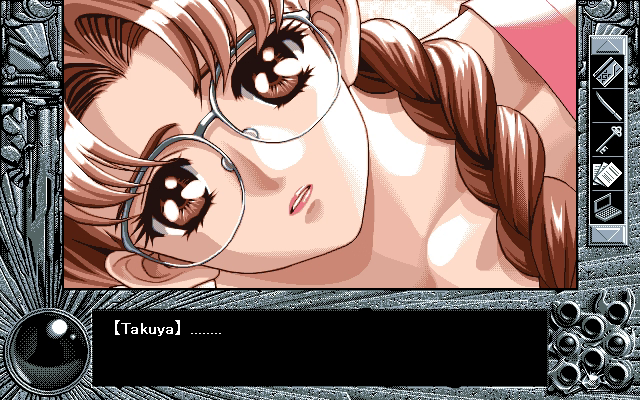Triangle Mountain would not feel half as awesome and tranquil without the solemn “Omen” and other associated tracks. The dreamy and bittersweet charm of their unmistakable respective musical themes still strikes me when I sometimes hum them, forcing me to recall Mio and Kanna. And despite how gross YU-NO gets, “Claire de Lune,” which plays during Takuya’s meetings with Eriko, Mio, and Kanna at the café Evening, may continue to stir memories of my impressions before I realized I had given YU-NO too much credit, fond memories of nighttime café chats involving history, cigarettes, and adventure—with big breasts and white panties too. The player can fiddle with a jukebox in Evening to hear different background music instead. Though I would prefer “Claire de Lune” trigger memories of Flower, Sun, and Rain.
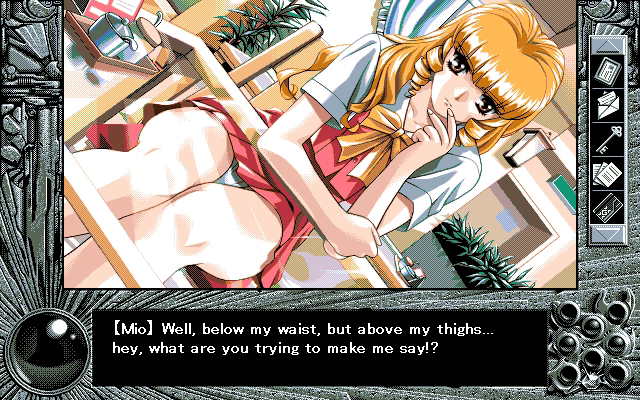
While the writing maintains a plodding tone, the music has range. Some tracks are funny, such as “!?” which plays, among other instances, in the scene when Takuya follows the old sex comedy trope of walking in on a girl while she is naked in the bathroom, except here the girl, Kanna, does not care at all and instead jokes:
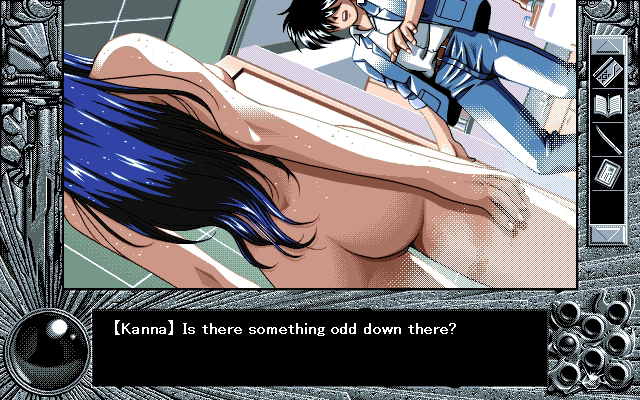
The word that “!?” evokes is “hanky-panky.” There is also “FANKY TANG,” used in some goofy bonus content, including the Picross minigame “Erinrin’s Private Lesson” where victory means Eriko sitting on your face. With no shame do I admit I am vulgar enough to find this charming.
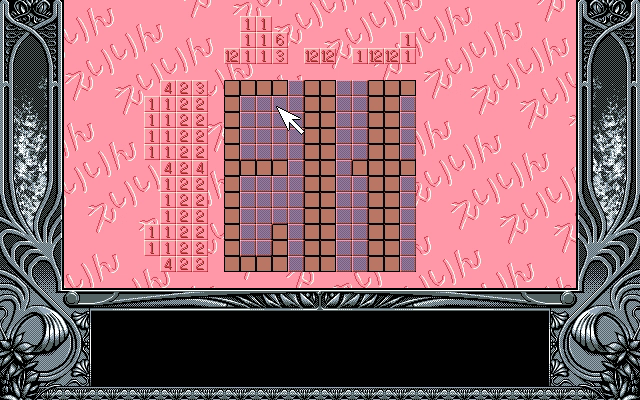
Umemoto piles on the tension for the frightening moments too. Hidden within YU-NO is more than disgusting incest crap—there is also a thriller, at times an outright horror story, strongest on the Mitsuki and Mio routes. The oppressive journey into the tunnels beneath Triangle Mountain is a particular standout. In the darkness of the passageways, the sound of dripping water and sparing use of music, the player undertakes a point-and-click puzzle sequence involving using medals in stone gates. The etching of the devil on the floor is particularly creepy, the implied age of the technology Lovecraftian. The horror of the ancient corpses—their poses testament to the violence of their deaths—of Imagawa’s mummy, of the claustrophobic passageways black as those of Shadow Tower, and even the shocking death of Takuya’s best friend Yuuki and the subsequent high-octane encounter with the deadly ancient watchtower, possibly with Mitsuki there trying to gun Takuya down on Ryuuzouji’s behalf, would not achieve the tone without chilling tracks like “Fear” and “Manifestation.” How sad that Umemoto used his talent on this.
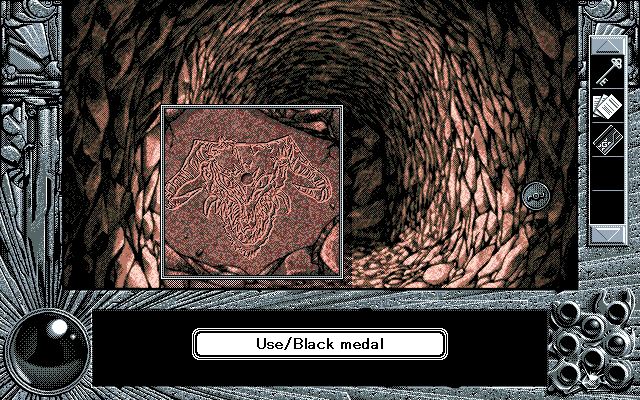
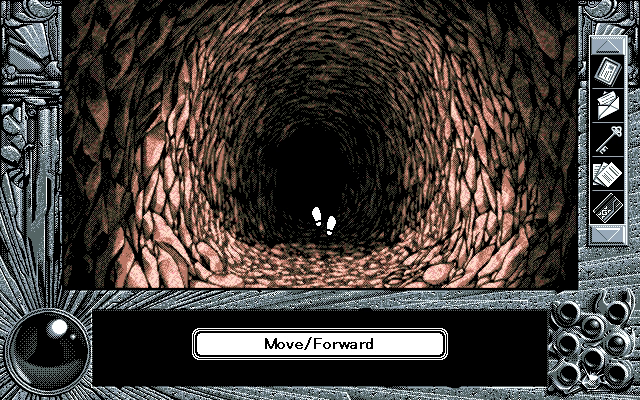
Before I forget, this being YU-NO the Disappointing, the oppressive journey into Triangle Mountain prominently involves deciphering an ancient numeric system and figuring out how to use a mechanism to open a door. The apparatus operates off—Picross.
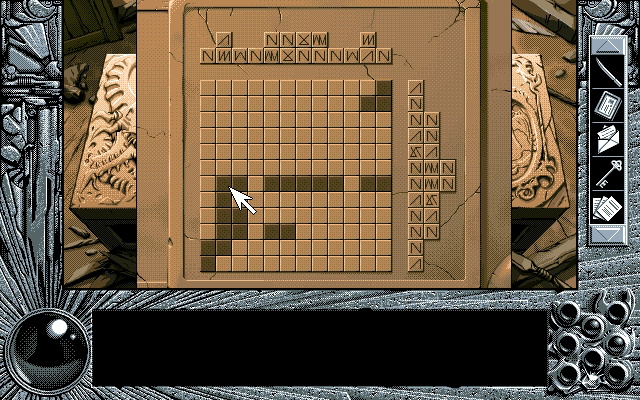

At the time, as I had never played Picross, the sophistication and complexity of the puzzle and the stressful music “Room” blew me away. Then I realized, and the single most standout sequence of YU-NO is defanged. Maybe these are the ruins Mario and Wario were exploring in the Game Boy Mario Picross games. Maybe the Dela Grante theocracy’s computers, instead of a password system, use Sudoku—no wonder Ayumi somehow knows how to use their Grandmother supercomputer in the Epilogue!
